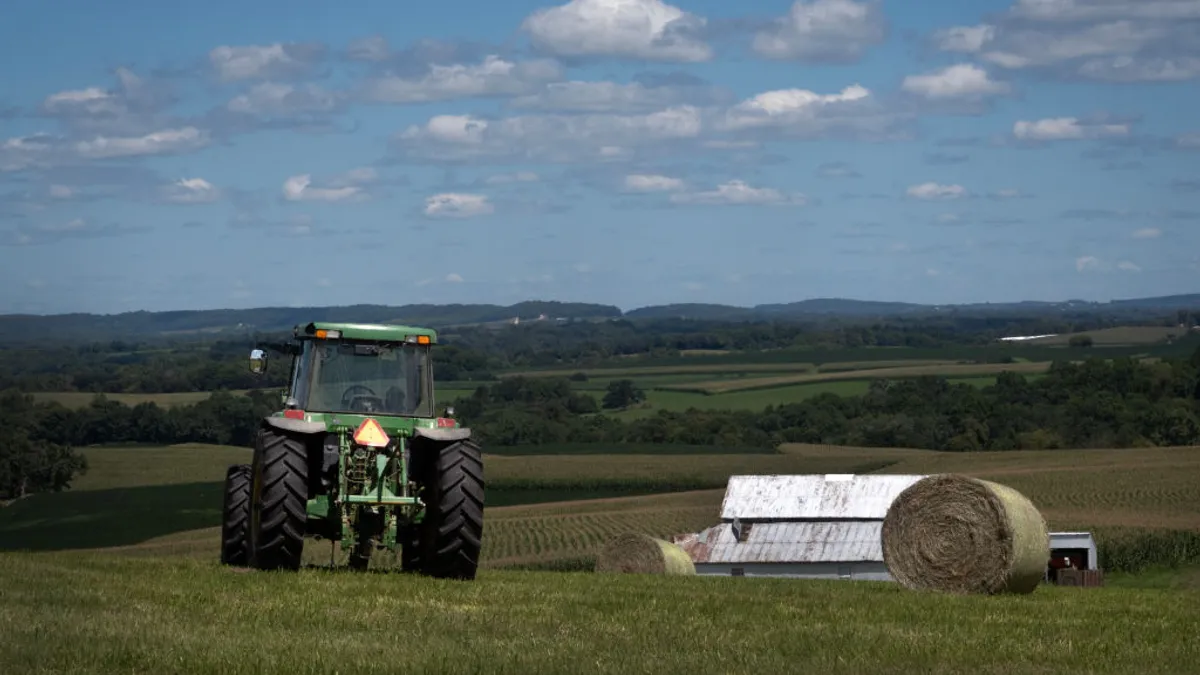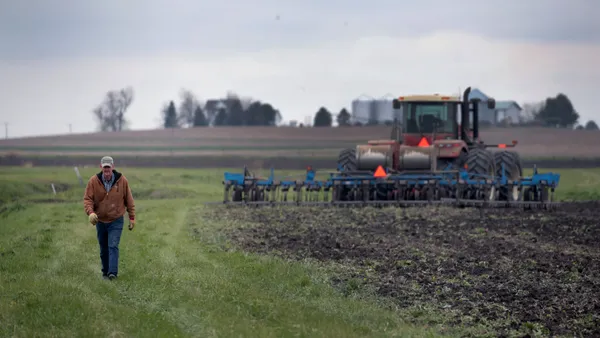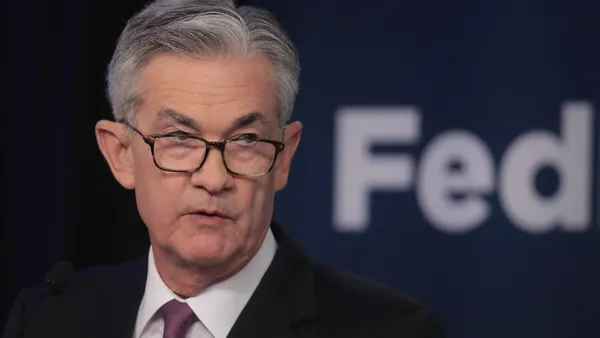Dive Brief:
- The U.S. Department of Agriculture will release $2.3 billion to expand international food aid and help exporters remain competitive in global trade, the agency said Tuesday.
- Using funds from the Commodity Credit Corporation, around $1.3 billion will be dedicated to a new Regional Agricultural Promotion Program, which will help exporters break into additional markets. Another $1 billion will address global hunger by allowing the USDA to buy surplus commodities from U.S. producers.
- The announcement comes a little more than a month after Senate agriculture leaders requested more agency money for trade promotion and in-kind international food assistance as negotiators face funding constraints in crafting a farm bill.
Dive Insight:
U.S. agricultural exporters have struggled in 2023 as a strong dollar and lower commodity prices make them less competitive in the global market. As a result, stakeholders have called for more money in the farm bill to expand trade opportunities in underserved countries.
The USDA’s development of a new export promotion program is meant, in part, to replace the Agriculture Trade Program, an initiative started at the height of the Trump-era global trade war to help exporters diversify away from China. Funding for the ATP is set to expire this year, and “many exporters are already curtailing their activities,” the agency said.
Although agricultural groups lauded the new investment, they stressed the need for more money in the farm bill for the Market Access Program and Foreign Market Development initiative, which they say haven’t received funding boosts in 16 years.
“We look forward to expanding exports of corn, sorghum, barley and their co-products with this new source of funding,” U.S. Grains Council president and CEO Ryan LeGrand said in a statement, “however, there is still a need to increase long-term funding of the MAP and FMD programs in a new farm bill.”
Farm bill negotiators have scrambled to find other funding sources for key initiatives as they grapple with severe budget constraints and face calls from hard-right lawmakers to significantly cut costs.
The USDA’s reliance on the Commodity Credit Corporation, which it is using to fund the trade initiatives, has also come under fire from Republicans. The CCC is a funding mechanism for agricultural initiatives that provides agency leaders with broad authority on how to distribute the money.
Recently, the agency has used the CCC to pay for its climate-smart programs that encourage farmers to transition to more sustainable agricultural practices. Republican Sen. Chuck Grassley in July introduced legislation to limit how the USDA could spend funding under the CCC, noting the agency is “at risk of becoming a slush fund for politically-driven pet projects.”











